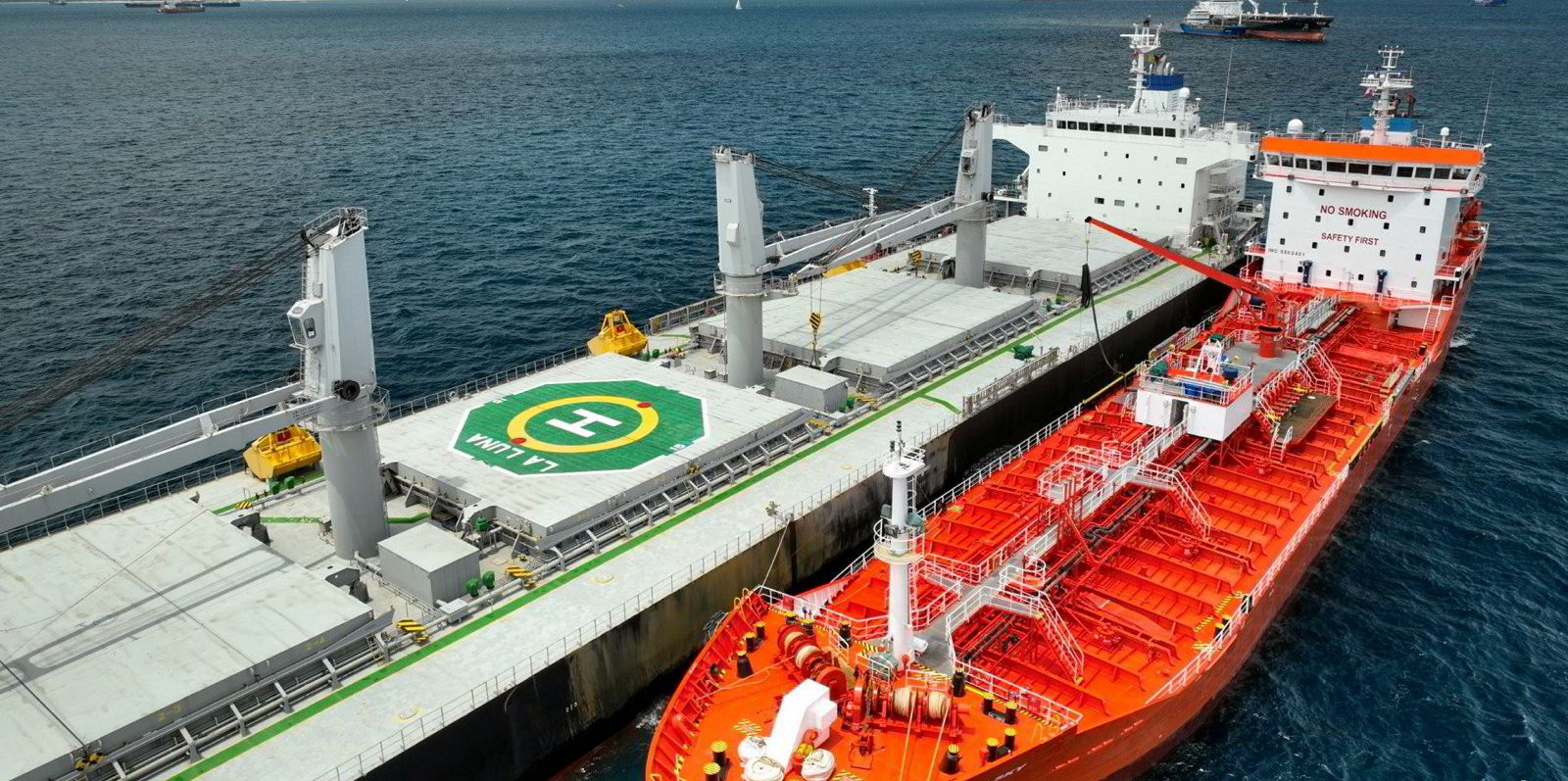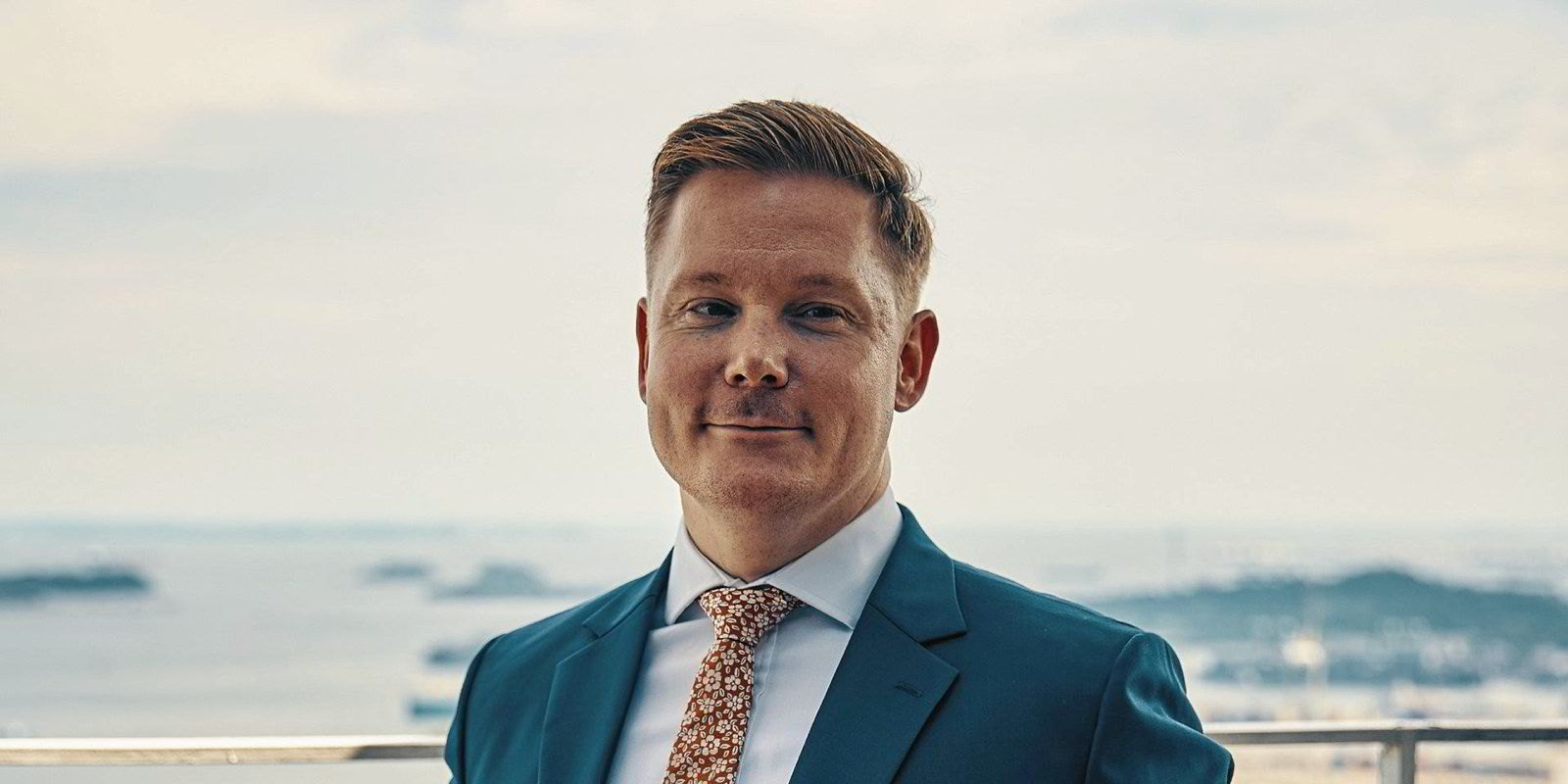Tanker and bunker group Peninsula has continued to supply biofuel through a ship-to-ship transfer with one of its new tankers.
The company made the delivery from its 9,100-dwt chemical carrier Hercules Sky (built 2021) to a Norden ultramax bulker at Gibraltar.
The Danish vessel, the 63,000-dwt La Luna (built 2019), took on a biofuel blend, B24, derived from used cooking oil.
“The growing demand for biofuels in the Mediterranean reinforces the company’s decision to add the product to its range of marine energy solutions,” Peninsula said.
The drop-in low carbon fuel requires little to no retrofitting to receiving ships, the company added.
“Peninsula is constantly progressing its decarbonisation strategy according to customer needs. Based on detailed customer interaction, we are confident that biofuels will form a meaningful emissions reduction solution,” the company added.
Norden has been a pioneer of biofuel use for a number of years.
Its head of decarbonisation and climate solutions, Henrik Rojel, said it is essential to have a growing base of suppliers.
John Bassadone, Peninsula’s chief executive, said: “Biofuel adds another lower carbon option to Peninsula’s diversified product offering and marks a further significant step towards our collective transition to a zero carbon future.”
Nacho de Miguel, the company’s head of sustainability, said Peninsula will focus its biofuels supply in key ports where sufficient critical mass exists.
Mediterranean a key region
“The Mediterranean is a key region for global shipping, and the Gibraltar Strait enjoys an excellent strategic vantage point to capture the inevitable, imminent increase in biofuel demand,” he added.
In 2021, TradeWinds reported that Peninsula had been taking more control of its physical supply chain and invested in a fleet of tankers and storage hubs.
The next step was to undertake a transition to offer greener marine fuels.
The group signed up for an LNG bunker vessel newbuilding that year.




